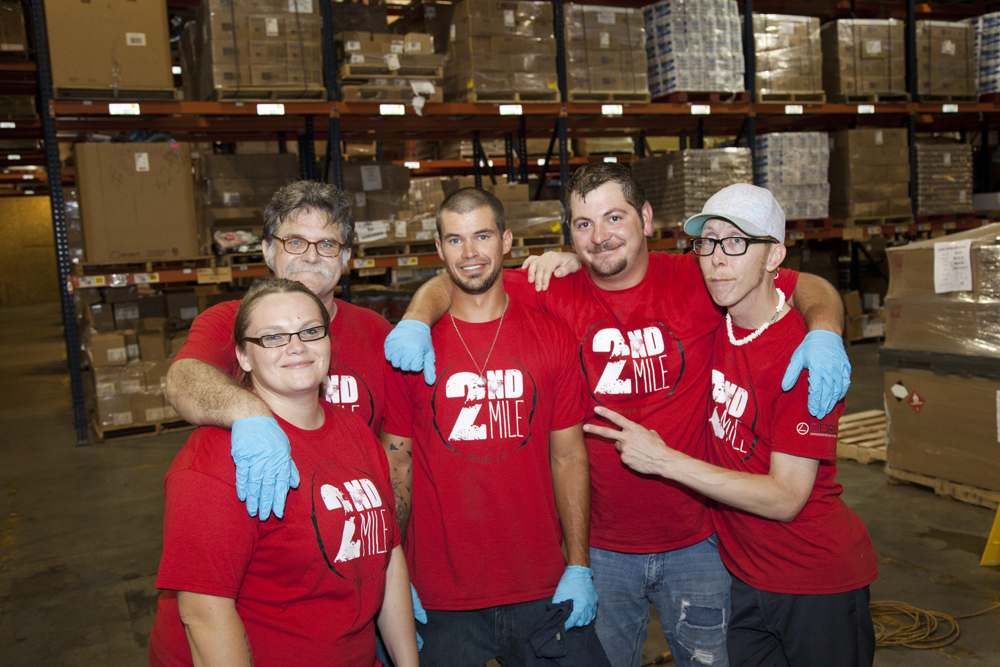Fear Of Seeking Help In Recovery
Every so often a client commits to attending a drug and alcohol recovery program but, when the big day comes, never shows. It goes something like this:
It’s recovery day and everybody has anxiously awaited this for a long, long time. The client’s stoked. The family’s stoked. Even the dog is stoked. Life had become unbearable for all. It’s time to take the next step, really, to stop talking and just do it. Time to nip it in the bud. Now that the day has arrived, moreover, surely everyone will commemorate this occasion when their beloved grabbed the bull by the horns and went to rehab. Thus, at daybreak the client and family load up the car and head out. At 9:00 a.m., the rehab technicians receive a telephone call from the client: they’re only miles away! No hurry, the techs tell him; they’re waiting with bells on! Yet, what should be no more than an hour long wait unexpectedly drags on into late afternoon.
At noon, and about three and six o’clock, the techs receive additional calls reporting immaterial events. It’s stuff like, they stopped to get toothpaste and a bathrobe, traffic was backed up because of a road incident, or something similar. Each time the client or a family member reports that they’re back on the road and will be there in no time – not to worry! As the sun sets, however, they still are nowhere to be found. The client no longer answers his phone, and the overnight tech finally marks him down in the log as a “no-show.” He never arrives, and it turns out that the client, who only that morning appeared so eager to start his new life in sobriety, had begun negotiating with the family during the trip. He pleaded with them, promised to try harder, and begged them to take him home.
For the reader who isn’t steeped in addiction recovery, this about face and failure to appear might seem altogether puzzling. We might think that, from the client’s perspective, getting into rehab would be the most obvious and natural thing to do. After all, being imprisoned in the cycle of addiction is utter misery; it wouldn’t be wished upon anyone. By analogy, if we were stuck someplace like an elevator or a deserted island, we’d be only too happy to escape. It only makes sense that an addict would jump at the chance to break free of his bondage too. Why go through all the trouble, then, only to bail out at the last second?
By far the most common reason why a client fails to show up at a recovery program is that he has become paralyzed with fear. To appreciate how and why this happens, we have to go back to the basics.

Experts who study fear tell us that it is a natural and primitive, but powerful, response to danger. Its purpose is to mobilize us for a predictable “fight or flight.” We can readily conceptualize this by thinking about prehistoric or stone age movies. Name any flick about cavemen and we’re bound to see fur-clad people either running from exploding volcanoes or fighting off scary creatures. These films are short on anthropological and historical value, admittedly, but they clearly bring into focus our most basic understanding of fear and how it operates. Once we see danger, our fear naturally provokes some type of protective response.
We’re mostly spared from volcanos and wild animals today, but the basic survival mechanism that kept our ancestors safe is still in full operation. Everybody has fears. Sometimes the threats are open and obvious, like tornadoes, road hazards, or physical attacks, all of which call for immediate, decisive responses. Most dangers, however, are more complicated. They are situational and involve so many kinds of pains, losses, failures, and uncertainties, that nobody has ever really worked out a satisfactory classification system for all of them. Listing all of the people, places, and things that trigger fears would be an impossibly monumental task. Furthermore, our best responses to such dangers are rarely straight-forward. More often they are provisional and rely on contingent and unknown events.
Significantly, to the addict and alcoholic, the prospect of recovery is only superficially like escaping a desert island or stuck elevator. There are still plenty of fears even when we are on our way to a life-saving recovery program. Perhaps a better analogy for the experience is something like leaving a bad relationship, or quitting a dreary job. The immediate objective is clear in these situations – leaving – but life afterward is uncertain. The fear of ending up alone, or being unable to pay bills, becomes very real in such cases. Making a new life involves so many unanswered questions that it can overwhelm a person, who thereby avoids rather than overcomes the reasons for their fears.

Attending a recovery program clearly is a pressing, urgent concern, but the client who decides to go broadly faces two fears: fear of change and fear of failure. It’s no secret that addicts dread change. Our drug and alcohol careers were largely spent micro-managing everyone and everything around us to assure the status quo. We sought to preserve the ease and comfort afforded by our next drink or drug. While intoxicated we went to our safe place – we “tuned out.” In the process we became increasingly isolated from the world around us and everybody in it. Our natural inclination turned into an aversion to leaving our safe place. We feared everything that threatened our little sphere of ease and comfort. The existence was hardly idyllic. It wasn’t even tolerable, but it was all that we had, and knew.
Recovery, by contrast, means change, and lots of it. While these changes are uniformly positive, as new clients we could scarcely foresee, let alone control, the particulars of the sober life we were about to enter. We knew enough to understand that it meant abandoning our safe place to come live in a new community with new people, and to adopt an entirely new plan for living. In short, we were stepping into unfamiliar territory. Even though we at CORE have lived, successfully, through this process, we also understand how a new client, unprepared and confronted with the prospect of so many changes, might become overwhelmed and flee from the challenge.
The alcoholic and addict also fear failure in recovery. It’s not that we were strangers to failure. The world never lived up to our expectations to begin with, and once we had retreated to our safe place of substance abuse, our lives became a monument to quitting. You can’t win if you don’t play, so problems piled up so quickly that our expectation of failure more or less became the norm. Our fears arose out of the fact that we were powerless over our addictions. We’d made countless attempts to quit and our efforts came to nothing. For most of us, coming to CORE was our last resort. Simply making the decision to go does not, by itself, inspire confidence.
Inwardly, many of us wondered how we would even be able to quit. The sober life seemed like a pipe dream. We asked ourselves how it was even possible, and we doubted that anyone really achieved happiness and comfort without illicit substances. In short, we genuinely feared that our decision to come to a recovery program might turn out to be a crushing disappointment. Failure would provide irrefutable proof to ourselves of our ultimate fear, that our situation was hopeless. This is a risk of failure so great that some may avoid even trying in the first place.

In light of a client’s fears coming to a recovery program, one might reasonably ask how often these unfortunate situations actually occur. The industry does not keep such statistics. However, our staff at CORE who worked in rehab facilities report that this was a weekly occurrence at their former places of employment. We readily can see how this might happen if a client isn’t adequately prepared for their stay. Fortunately, CORE is blessed with talented intake specialists who are aware of and actively address this issue. Every client coming to CORE receives a thorough orientation that inspires confidence in their decision to enroll in our program.
Before the client ever steps through our doors, our specialists have taken their history of substance abuse, reviewed our program with them, and discussed the client’s expectations and concerns about leaving home and starting a new life in sobriety. Nothing is dismissed or minimized, whether it pertains to loss, loneliness, boredom, finding a good job – or anything. Anxieties are addressed with sympathy and understanding by providing the client with thoughtful, candid answers. For those who may be shy about volunteering, our specialists relate their own personal experiences in order to introduce the topic. The point is, no matter how brave we want to appear, it’s perfectly natural to have fears in unfamiliar situations. Recovery necessarily involves new experiences and challenges, and the client will not be alone. We have been in their place, too. We take their concerns seriously and will be here to help.
Our specialists also educate the client about our recovery program, how it works, and what results they can and should expect. For a new client, the thought of living sober may seem impossible, even terrifying, because they are totally reliant on their addiction for emotional support. With this in mind, we introduce the 12 Steps for what they are and always have been – the recovery program upon which the client can safely rely when all other treatments and measures fail. The client is encouraged to meet and become acquainted with our staff, each of whom have worked the 12 Steps and enjoy years of complete sobriety. Nothing about the client’s program is left to guesswork or chance. We’ll be right there with them, and they will receive thoughtful and caring guidance on every step of the way. CORE presents the client with a unique opportunity to be reborn to a life filled with purpose and self-worth, economic security, and emotionally secure relationships with others. Working the 12 Steps accomplishes all of these things and more. We’re excited to be part of this program, and we think the client will too.
For readers who may have friends or loved ones contemplating a recovery program, please remember that everyone needs a listening ear. Ask them to tell you about their hopes for recovery and what they want to accomplish by attending a residential program. Talk about any concerns they may have and exactly what makes them afraid. If answers aren’t readily available, encourage them to call the recovery provider for additional information or another opinion. Your efforts will be a positive safeguard that your loved one does the right thing when the moment for residential treatment arrives.
